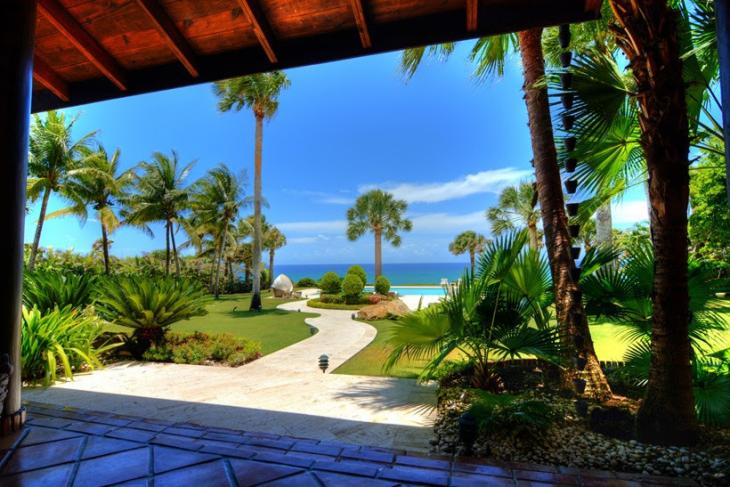
Tips for buying a Caribbean dream home
It has never been easier to snap up a property on many of the Caribbean islands thanks to relaxed rules regarding foreign ownership and a much-welcome reduction of red tape. Prices have stabilized after a period of rapid growth. Governance is much improved, construction is of a high standard and infrastructure for expatriates mature and well-established.
Of course any major investment requires plenty of research coupled with lots of robust, basic common sense. The Caribbean region has its own quirks and foibles - and no more so than in its handling of real estate. It isvery important not to make assumptions that buying a home on a Caribbean island will be similar to doing so at home.
So, where to start?
Location: This is an all-important first decision to make. If you have fallen in love with a particular island then it may be simple to narrow down your choice. But if you are coming to the Caribbean with an open mind remember there are 7,000 islands to choose from! Don’t skimp on fact-finding at this stage as it is important to do some deep digging to establish the pros and cons of a location based on a wide range of socio-political, financial and lifestyle factors, such as amenities, crime figures, accessibility, costs and legal requirements.
Property type: Caribbean homes come in a zillion different build styles and range from multimillion dollar mansions featuring a custom built cinema and private beaches to simple apartments with one or two bedrooms. Your budget may well govern what you buy but another important point to consider is how often you intend to occupy the home. A holiday home or a villa for rental is a very different proposition to a family property you intend to live in year-round. Either way, sound advice is vital.
Several Caribbean islands have luxurious planned developments designed with overseas buyers in mind - offering amenities such as swimming pools, restaurants, boat docks and other prestigious facilities such as big-name golf courses or spas
House-hunting: Most agents working with overseas buyers will put together a portfolio of suitable properties that match your criteria. They will set up viewings to fit around your schedule and accompany you to each property to ensure you are full briefed. They may also help in finding a suitable attorney and resolving all the queries that arise during the entire transaction. Often, they will negotiate the deal on your behalf and should always appraise you of the context of the sale. They can also help you understand the local ways of doing business and the island’s unique property conventions.
Bespoke build: Planning to build your own home? Then be sure to check the availability of first class architects and contractors on your chosen island. The region has good standards of local labour and materials. A reputable builder should be able to ensure supply chains, project management and budget control (ask to meet with previous clients for a face-to-face endorsement). Check with the relevant High Commission regarding any restrictions.
Budget: Deciding on your maximum price-tag is essential at this stage. Do your sums, be realistic and once you have agreed on a figure make a pledge that you will stick to it. Don’t be seduced by a home that you can’t afford once you’re feeling blissed-out and uninhibited in the Caribbean: it’s easy to do, after a lunchtime rum cocktail on the beach, in heavenly sunshine, when caution can be thrown to the wind. So take your time, fix a budget and don’t lose your head.
Advice: Engaging a reputable real estate agent and seeking the advice of an impartial legal professional are two crucial steps - you will rely on their expertise, honesty and transparency considerably during the purchase and both need to be people you can trust. Ask for recommendations from other overseas buyers who have gone through the process. The local Chamber of Commerce, if there is one, will be able to help too. Check to see if there is a Real Estate Association in your chosen location. Online forums can be useful too.
Regulations: Although the 7,000 islands are summed up in one as “the Caribbean” legislation varies considerable from island to island, depending on the country. For example, The British Virgin Islands are a British Overseas Territory and the legal system is based on English common Law and locally enacted legislation. Other islands will have very different legal requirements, which will impact ownership rules, your tax situation, the financing the project and many other issues. The advice of an Independent Financial Advisor is recommended.
Fees: Be sure to get all property transfer fees, stamp duty legal and other related costs confirmed in writing before you sign on the dotted line - these fees vary enormously from country to country and will need to be budgeted for from the start. Another significant cost to consider is the import duty on personal possessions and furnishings you may wish to bring from home. Many overseas buyers wish to relocate pets too - each country has its own laws governing this.
Wherever you are considering buying, and whatever style of property is top of your list, remember that nothing is gained from too much stress, anxiety and budgetary concerns. Stick to the plan, take good advice, keep a cool head but most of all, enjoy your search for a slice of beautiful Caribbean paradise - happy house hunting!




